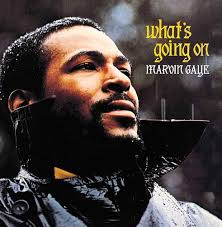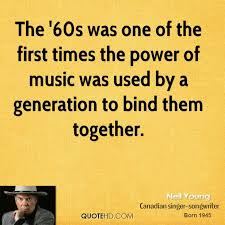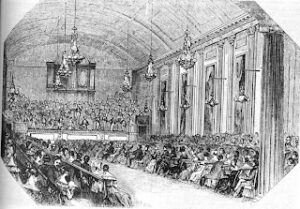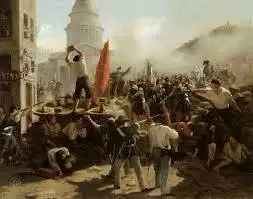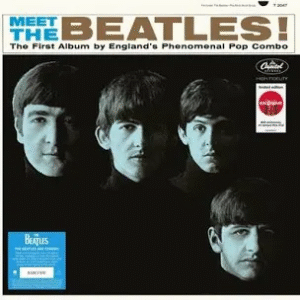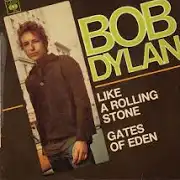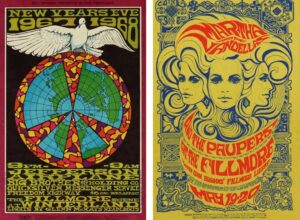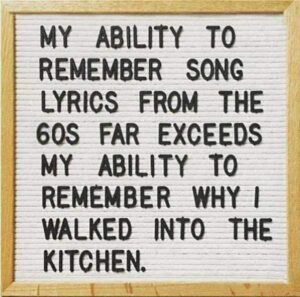To read today’s post in its optimal format and listen to the music, please go the the Just A Thought website. Please click here.
The story of the Baby Boom generation has been told through our music. We were blessed to have had an extraordinary soundtrack.
It’s hard to overstate its significance.
Music has the unique power to create a memory so strongly that it can instantly return a person to an earlier time and place. I distinctly remember the moment I first heard:
- “Hey Jude” ~ at the original Red Robin Restaurant
- “Sgt. Pepper’s Lonely Hearts Club Band” ~ at Sarah Hokanson’s house
- “A Whiter Shade of Pale” ~ in Henry Huetter’s room at the Newman Center
- “Light my Fire” ~ at a dance in the HUB on the University of Washington campus
- “My Girl” ~ at Ray Levias’s brother’s apartment
- “Good Vibrations” ~ in a car with my high school buddy, Kevin Miller
Our music did more than just reflect our aspirations — it helped to create them.
Somewhat like in the 1840’s in Europe when a revolution was fueled by music.
It was the height of the Romantic Age when Chopin, Liszt, Schumann, and Verdi were producing some of their most iconic and emotionally charged works.
This Romantic Age in music emphasized:
- emotion over reason, and
- the power of individual expression
The virtuoso performers invented a new “concert culture,” transforming music into a powerful public and personal art form.
The backdrop to their music was a continent in social, political, and economic upheaval which culminated in the revolution of 1848.
The music infused the people with an infectious revolutionary spirit that spread from one country to the next in what later became known as the “Springtime of Nations.”
The same can be said of music of the 1960’s.
The Beatles, The Beach Boys, Bob Dylan, Jimi Hendrix, Aretha Franklin, Marvin Gaye, Eric Clapton, Joan Baez, Joni Mitchell, and many others had a hand in revolutionizing popular culture and with it the psyches of a generation of young people.
We’ve been playing this soundtrack for the past 60 years.
Music itself became the driving force for:
- inventing a youth movement
- spiriting a civil rights movement
- igniting an antiwar movement
It is not an exaggeration to say the awakening of the age WAS the music.
Ask any Boomer their top ten favorite recordings and, in moments, you’ll have their list.
They’ll all be different — but we have our list.
As the world grappled with war, civil rights, and dissent on all fronts, music became the medium through which we could find a new sense of purpose and a way to connect with one another.
So, as a card carrying member of this generation let me just say I’m using music to help guide me through these troubled times and to remind me of my spiritual roots and the age that birthed me.
I need my music more than ever.
As you might have gathered, life is wearing heavy on me these days.
But I haven’t lost heart. — When I listen to MY music I remember that the soul knows, and the truth feels alive.
So, you ask me, which song is sustaining me these days.
“Blackbird”
Written by Paul McCartney and released in 1968 on the White Album, “Blackbird” is uplifting in its sheer simplicity.
- McCartney’s voice – raw and unfiltered
- acoustic guitar
- ambient sounds of birds chirping
McCartney said he wrote the song in response to the American civil rights movement.
The Blackbird has become a symbol of those who have been marginalized and silenced in society, much in the way many of us feel now.
But the song urges us Blackbirds to rise and find our voices.
So let’s listen together and be lifted up by the mighty Blackbird.
Just a thought…
Pat and Marsha
Copyright © 2025 Patrick J. Moriarty. All Rights Reserved.

